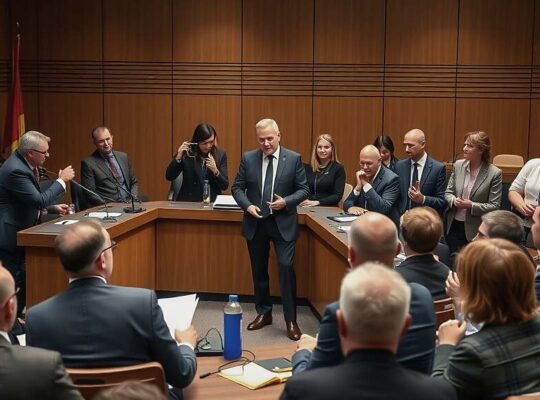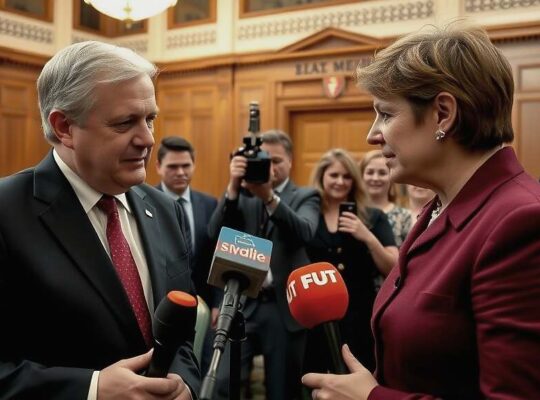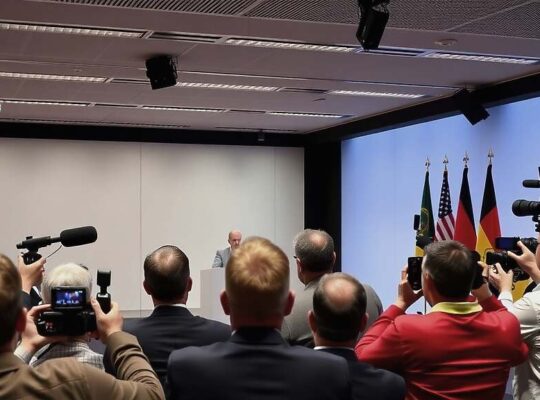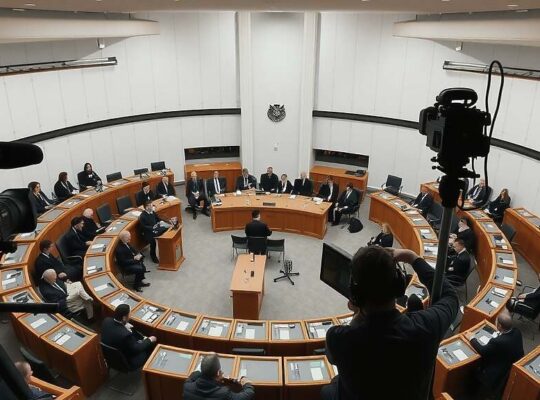A new poll conducted by Forsa indicates a slight shift in voter preferences and a growing sense of economic uncertainty within Germany. The CDU and CSU alliance experienced a minor decline in voter support, currently standing at 26 percent, representing a one-point drop from the previous week’s survey for RTL and ntv.
The AfD maintains its position at 24 percent. The SPD remains steady at 13 percent, mirroring the Green Party’s consistent standing at 12 percent. Die Linke holds comparatively stable at 11 percent. The BSW remains stagnant at 4 percent, while the FDP has gained a single point, now also at 4 percent. Smaller parties collectively retain a 6 percent share of the vote.
Perceptions regarding political competence also reflect a subtle change. CDU/CSU’s perceived competence has decreased by one point, now at 23 percent. The AfD remains at 11 percent. The SPD holds at 6 percent, consistent with Die Linke, which added a single point to reach 6 percent. The Green Party saw a one-point decline, settling at 5 percent. A significant 46 percent of respondents believe that no party currently possesses the capability to effectively address the challenges facing the nation.
Economic sentiment has experienced a slight deterioration compared to the previous week’s results. While 22 percent anticipate an improvement in the economic climate (unchanged), 53 percent foresee a worsening situation (+2 points) and 22 percent expect conditions to remain the same, a decrease of 2 points.
The assessment of Jens Spahn’s suitability for the position of parliamentary group chairman for the CDU/CSU has proven largely unfavorable. Only 18 percent of respondents consider him fit for the role, while a majority of 68 percent deem him unsuitable. This criticism extends across the political spectrum, encompassing supporters of the SPD, the Green Party, Die Linke and the AfD. Notably, even within the CDU/CSU’s own base, 66 percent express reservations regarding Spahn’s fitness for the position.












